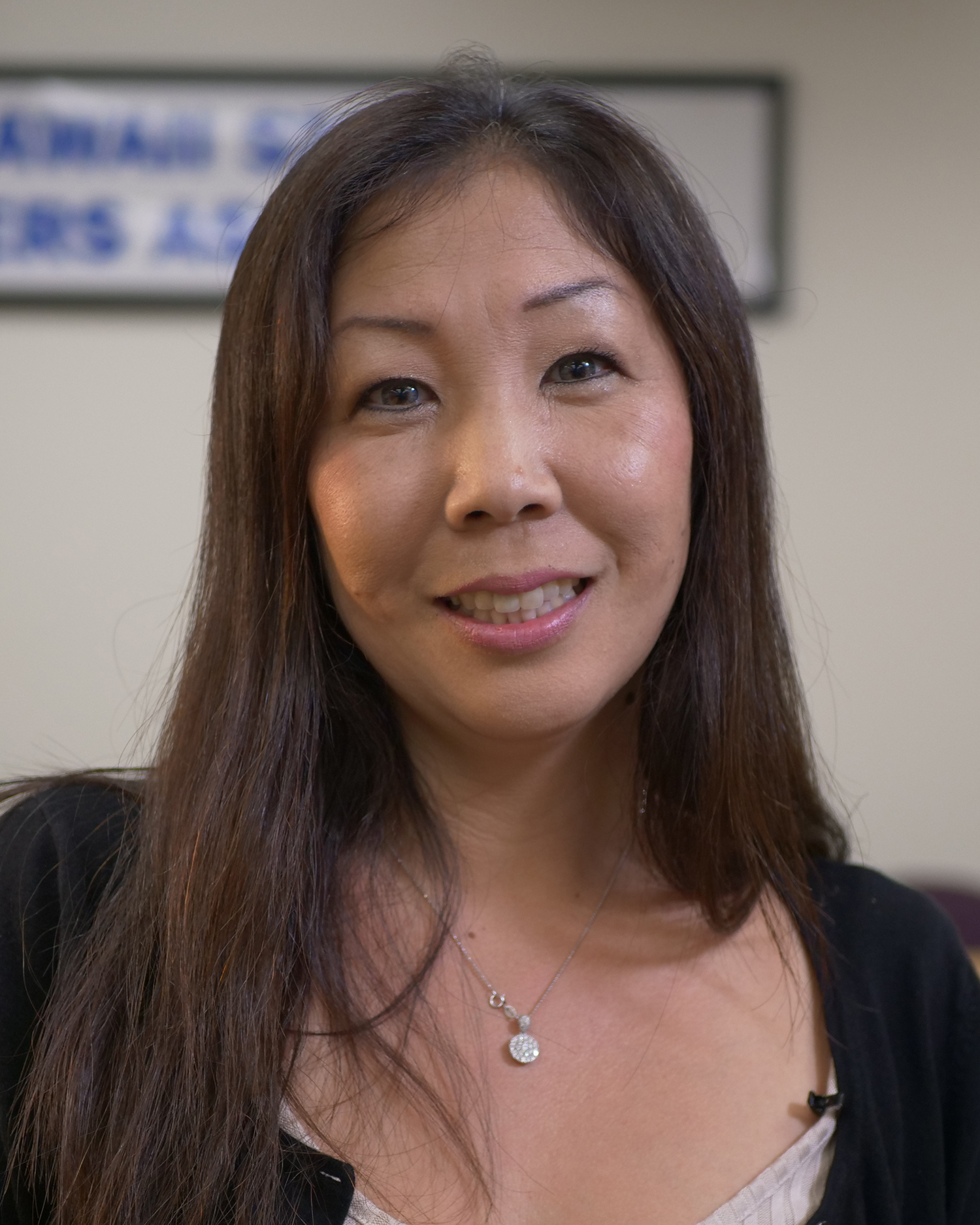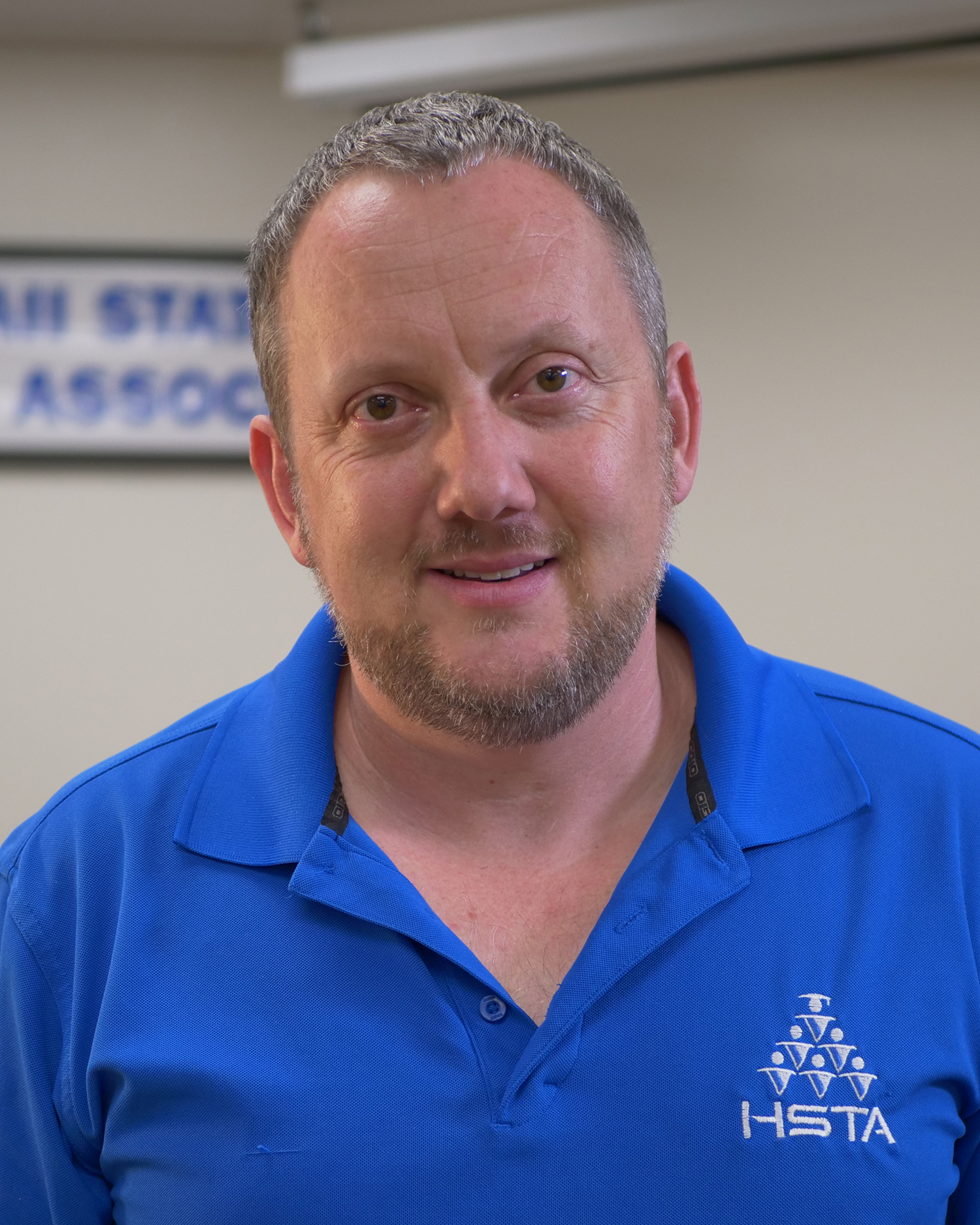Dale Matsuura, the student services coordinator at Roosevelt High School on Oahu, sees how Hawaii’s teacher shortage crisis affects our state’s most vulnerable students with special needs and their educators.
“There’s such a constant turnover that as a mentor, I’m constantly teaching new teachers every year, and every year we’re losing teachers because they’re burned out,” said Matsuura, who’s a 19-year veteran special education teacher and a volunteer member of the HSTA and HIDOE's joint SpEd Committee.
The Hawaii Department of Education reported in the 2018-19 school year that about 500 SpEd teachers did not have a SpEd license. That means more than 22 percent of the state's SpEd teaching positions were filled with unlicensed and unqualified educators who are less equipped to deal with students who have some of the highest needs.
Click here to watch this video on YouTube.
SpEd teachers need more time to prepare lessons, IEPs, etc.
Teachers of students with special needs are overwhelmed for a number of reasons, mainly that they don’t have enough time to do what is required to properly teach them, said Jessica Alipio, who teaches inclusion SpEd math and science at Waiakea High in Hilo.
“It takes time to create an individual plan for a student, and having eight students in an inclusion classroom and having four classes a day, so that’s a total of anywhere between 20 and 30 special ed students, and working independently and individually to make sure they can access the curriculum is time-consuming,” said Alipio, who’s spent 17 years as a SpEd teacher and is a member of the joint SpEd Committee.
"I’m constantly teaching new teachers every year, and every year we’re losing teachers because they’re burned out."
Dale Matsuura, Roosevelt High School student services coordinator

Shannon Kaaa, a SpEd preschool teacher at Fern Elementary, said, “I think the biggest difficulty is the feeling of the lack of support. I know that I feel that at times," and so do her colleagues.
Kaaa, a 20-year SpEd veteran and member of HSTA's Negotiations Team, said the HSTA representatives on the joint SpEd Committee are “bringing to light these things to the DOE and we’re sharing with them that special ed teachers need more time. They need time for preparing their lessons for other students. They need more time for collaborating, and they actually need time to provide the services that are in the IEP (Individual Education Program) minutes. A lot of teachers feel overwhelmed.”
“I had a teacher who I was a mentor to and she shared with me that she’s thinking about leaving the profession," Kaaa added. "She’s been teaching for five years and she really is passionate about doing the best for her students, but she says every year she feels that there’s less and less support and she feels very discouraged about it, and I think that’s an overall feeling for special ed teachers.”
Kaaa and Matsuura said SpEd teachers need at least one extra prep period, up from the one daily 45-minute prep period that all teachers are allowed under HSTA's contract with the state.
“Because really, right now, they’re trying to choose. Am I going to plan for this IEP or am I going to plan for a great lesson for my students in the classroom?” Matsuura said. “Having the additional prep period will allow them to do both.”
An IEP is a written statement about the educational program for a child with a disability. It serves as a management tool used to ensure that the child receives the needed special education and related services. It also serves as an evaluation device when used to determine the extent of the child's progress toward accomplishing projected goals.
Click here to watch this video on YouTube.
SpEd differentials or bonuses would attract more teachers to this difficult area
Justin Hughey teaches SpEd second and third grade at Kamehameha III Elementary on Maui. Hughey said more pay in the form of a bonus would compensate special ed teachers for their extra work.
“All teachers in Hawaii deserve adequate pay, but I feel we need to look at substantially more pay to fill those positions because it requires so much more time beyond the school day,” Hughey said. “I believe that all teachers are underpaid in Hawaii, but for special ed teachers, I really do feel that in order to fill those positions that just constantly are filled with substitutes, that they need to consider paying them a little extra.”

“All teachers in Hawaii deserve adequate pay, but I feel we need to look at substantially more pay to fill (special education) positions, because it requires so much more time beyond the school day.”
Justin Hughey, Kamehameha III Elementary second- and third-grade special education teacher
The National Council on Teacher Quality reports at least 35 of the major school districts across the country already offer SpEd teachers a financial bonus of some kind. For instance, New York City provides a $5,000 SpEd bonus, with another $4,800 for housing assistance for SpEd teachers. Hawaii does not currently offer SpEd teachers any kind of differential or extra pay.
Some Hawaii regular ed teachers have expressed frustration with the idea of a bonus for SpEd teachers, saying that SpEd teachers don't work harder than other teachers.
Corey Rosenlee, president of the HSTA, said, “This is not about suggesting that one teacher works harder than another teacher. This is saying that our students who have special needs are being denied requirements under law that they should be given, and this is having devastating long-term consequences. We need to take action immediately in order to ensure that our special needs students are given the education that is required under law.”
Rosenlee warns of another Felix case, a class-action lawsuit filed against the state in the 1990s for failing to provide adequate educational and mental health services to special needs children. It resulted in the Felix Consent Decree with the federal government, which forced the state to pay more than $1.2 billion to privatize and create an array of services for children who would have been better served by hiring more qualified teachers and aides in the classroom.
What was the Felix Consent Decree?
May 4, 1993: The family of a developmentally delayed Maui girl named Jennifer Felix sued the State of Hawaii in federal court for failing to provide educational and mental health services to students with special needs.
Oct. 25, 1994: The federal court approved a settlement agreement, known as the Felix Consent Decree, which resulted in sweeping and dramatic actions by the DOE to be in compliance with federal mandates related to students with special needs:
- The courts granted the superintendent broad powers to do whatever was necessary to meet the consent decree requirements. This included overruling some of our contractual rights.
- All dual-certified SpEd teachers were forced into SpEd positions and could not transfer to new positions outside of the SpEd field and had extreme limitations on transferring to other SpEd positions.
- In an effort to fill SpEd teacher vacancies, the state paid a contractor $100 million to expedite the location and hiring of 100 qualified special education teachers from out of state.
- The state channeled millions of dollars through the court-mandated Felix Monitoring Project for outside consultants and providers in a rush to privatize and create an array of mental health services.
May 27, 2005: After 12 years, the case was officially closed under a plan approved by a federal judge. The state spent more than $1.4 billion on the Felix Consent Decree, drawing tremendous funds and resources away from other educational needs and outsourcing services to high-paid consultants and contractors when hiring more qualified educators would have addressed problems better and in a more cost-effective way.
More effective SpEd PD, more collaboration time needed
Tanya Weida is an autism consulting teacher for Campbell/Kapolei complex, covering Campbell High and Ilima Intermediate on Oahu. She has volunteered on the SpEd Joint Committee for five years.
Once SpEd-focused professional development is completed, Weida said the DOE needs more follow-up to see if it was useful in the classroom: “Say they go to training … on a certain methodology. Let’s go back into the classroom and see how that methodology is working out. Is it working? Is it not working?”
HSTA has continuously advocated for additional professional development for teachers focused on meeting the needs of students with disabilities. We will continue to fight for contract language to guarantee that support. HSTA also fully supports the SpEd Task Force recommendations issued in May 2018. “Teachers, administrators, support staff, and educational officers at the complex area and state levels – must have quality, embedded, and sustained professional learning,” the task force said. The DOE needs to design a system of “fundamental professional development” which requires identifying “core values, knowledge, skills, and abilities.”
Weida said an extra prep period “would help a lot of my teachers.” She added, “A lot of my cases are very data-driven, so looking at datasheets, having time to meet with your other teachers if they’re in inclusion.”
Hughey, the SpEd teacher from Maui who’s HSTA’s former vice president, said additional on-the-clock collaboration time is imperative.
“General ed teachers and special ed teachers need time within their workday to collaborate and plan on proper inclusion strategies, and there is no time in the structured work week in our contract for that, and it’s something that HSTA has been pushing for a while,” Hughey said.
“I think the biggest difficulty is the feeling of the lack of support. I know that I feel that at times.”
Shannon Kaaa, Fern Elementary preschool special education teacher

SpEd teachers would have more time to plan and meet with colleagues if they were given additional prep time during the school day.
Matsuura, the Roosevelt student services coordinator who helps break in many new SpEd colleagues, said it takes new educators about three years to adjust to the many challenges of teaching students with special needs, which is when so many newer educators are giving up.
“Three to five years for a new teacher coming into a school to learn their management, to learn their content area, to get better and then to get better at facilitating meetings, and it really takes three to five years. And many of these teachers are quitting at about that three-year mark. It’s like starting all over,” Matsuura said.
As HSTA continues to advocate for our members who work in special education, we strongly encourage educators to share their thoughts about how we can improve their teaching conditions and contract in our Negotiations Survey. Please take the survey here by Nov. 10.

